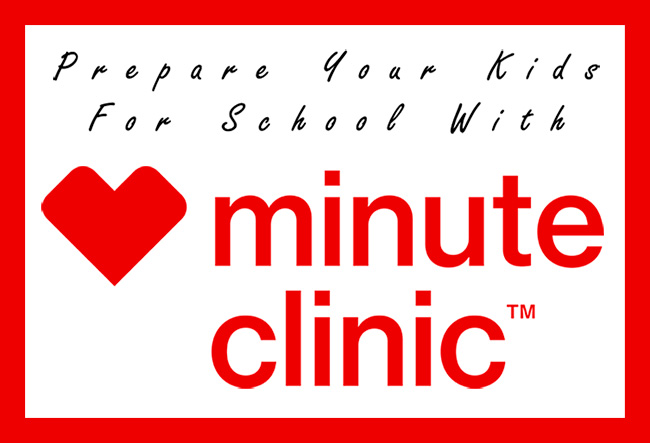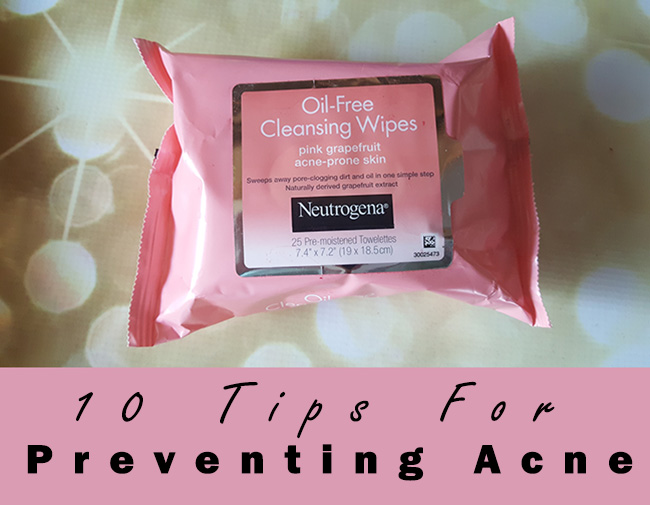I’m proud to partner with MinuteClinic as part of their Back to School #GoBackHealthy campaign. As part of my involvement, I have received sponsorship from MinuteClinic for my posts and activities, but all opinions expressed are purely my own.
This month has been an important month for my kids! While summer vacation was a ton of fun with lots of memories made, school has now began which means no more staying up late and our regular routines are back in effect. With school starting there are things that your children will need and also want to help prepare your kids for school.

Back to School Vaccinations:
Depending on the age of your child, certain vaccinations may be required for your child to start school. If you your child needs vaccines, MinuteClinic offers a variety of vaccinations that are needed for school such as Meningitis, Pertussis and HPV. Got a child going off to college? Many colleges and even boarding schools require the meningitis vaccine to protect their students living in dorms. It is also recommended that 11–12 year olds be vaccinated with the meningococcal conjugate vaccine and a booster dose given at age 16.
Sports Physicals
If your child plans on participating in a sport at school, good chances are that a sports physical will be required in order or them to participate. To make things simple and easy MinuteClinic offers Sports Physicals seven days a week with no appointments necessary to make sure your athlete can safely play.

Acne Treatment & 10 Tips For Preventing Acne
One thing that can cause stress with many teens is acne. MinuteClinic also offers personalized consultations and treatment recommendations for acne for all ages. They can diagnose the issue and also provide prescriptions to help your kids tackle those acne issues. You can also find a variety of acne products at CVS that will come in handy for helping with acne as well.

Below you will find 10 Tips For Preventing Acne:
- Keep your face clean. Whether or not you have acne, it’s important to wash your face twice daily to remove impurities, dead skin cells, and extra oil from your skin’s surface. Washing more often than twice daily is not necessarily better; it may do more harm than good. Use warm, not hot, water and a mild facial cleanser. Using a harsh soap (like deodorant body soap) can hurt the already inflamed skin and cause more irritation. Avoid scrubbing your skin harshly with a washcloth, an exfoliating glove, or loofah (a coarse-textured sponge). Gently wash it with a washcloth or a very soft cloth. Always rinse well, and then dry your face with a clean towel. (Toss the towel in the laundry hamper, as dirty towels spread bacteria.) Also, use the washcloth only once before washing.
- Moisturize. Many acne products contain ingredients that dry the skin, so always use a moisturizer that minimizes dryness and skin peeling. Look for “noncomedogenic” on the label, which means it should not cause acne. There are moisturizers made for oily, dry, or combination skin.
- Try an over-the-counter acne product. These acne products don’t need a prescription. They may have ingredients such as benzoyl peroxide, salicylic acid, glycolic acid, or lactic acid, which curb bacteria and dry your skin. Start with a small amount at first. Then you can adjust how much you use and how often, depending on how much peeling or drying you have. Use these products with caution if you have sensitive skin.
- Use makeup sparingly. During a breakout, avoid wearing foundation, powder, or blush. If you do wear makeup, wash it off at the end of the day. If possible, choose oil-free cosmetics without added dyes and chemicals. Choose makeup that is labeled as “noncomedogenic,” meaning it should not cause acne. Read the ingredients list on the product label before buying.
- Watch what you put on your hair. Avoid using fragrances, oils, pomades, or gels on your hair. If they get on your face, they can block your skin’s pores and irritate your skin. Use a gentle shampoo and conditioner. Oily hair can add to the oil on your face, so wash your hair often, especially if you’re breaking out. Got long hair? Keep it pulled away from your face.
- Keep your hands off your face. Avoid touching your face or propping your cheek or chin on your hands. Not only can you spread bacteria, you can also irritate the already inflamed facial skin. Never pick or pop pimples with your fingers, as it can lead to infection and scarring.
- Stay out of the sun. The sun’s ultraviolet rays can increase inflammation and redness, and can cause post-inflammatory hyperpigmentation (dark discoloration). Some acne medications may make your skin more sensitive to sunlight. Limit your time in the sun, especially between the hours of 10 a.m. and 2 p.m., and wear protective clothing, such as a long-sleeved shirt, pants, and a broad-brimmed hat. Whether you have pimples or not, always apply sunscreen with SPF 30 or higher at least 20 minutes before sun exposure. Look for “noncomedogenic” on the sunscreen label to make new pimples less likely. Read the ingredients on the product label to know what you’re putting on your skin.
- Feed your skin. Most experts agree that certain foods, like chocolate, don’t cause pimples. Still, it makes sense to avoid greasy food and junk food and add more fresh fruits and vegetables and whole grains to your diet. Dairy products and foods high in processed sugar may trigger acne. Avoid these.
- Exercise daily. Regular exercise is good for your whole body, including your skin. When you exercise, avoid wearing clothing or using exercise equipment that rubs your skin and may cause irritation. Shower or bathe right after exercise.
- Chill! Some studies link stress with the severity of pimples or acne. Ask yourself what’s making you feel stressed. Then look for solutions.
Learn more about the services you can take advantage of at MiniteClinic by visiting: www.cvs.com/minuteclinic/





Leave a Reply